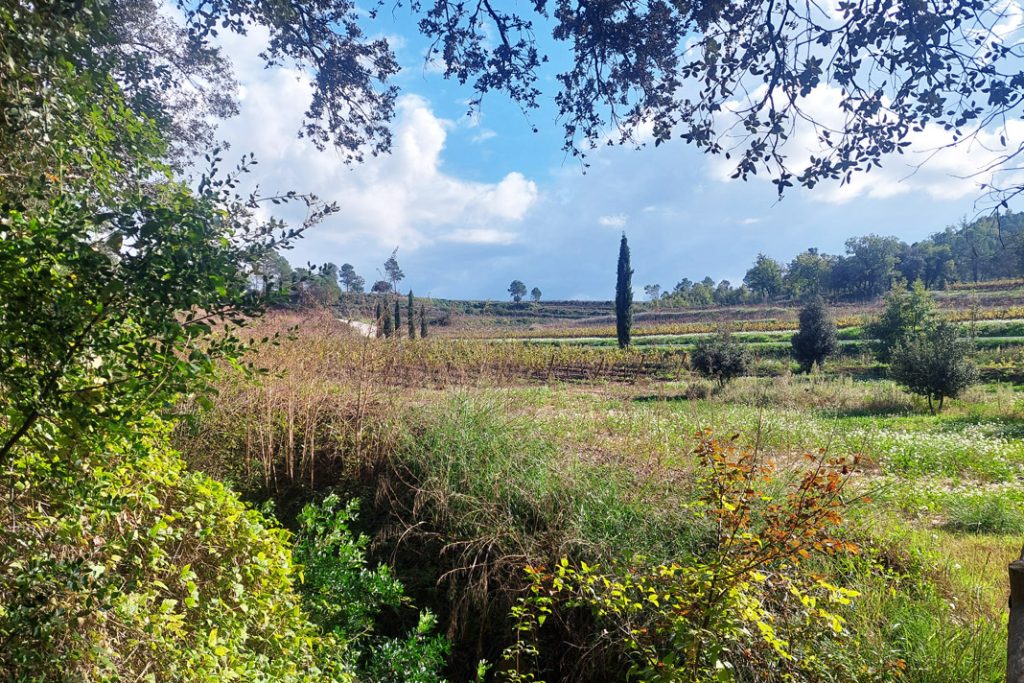
The ResAlliance project shares 121 innovative practices to tackle Mediterranean hazards like desertification, drought, and wildfires. Accessible online, these solutions empower landowners and policymakers to enhance resilience in agriculture, forestry, and landscapes.
The European project ResAlliance aims to enhance the climatic and socio-economic resilience of the Mediterranean landscape by providing practical solutions and innovations to agricultural and forestry professionals. A key approach in achieving this goal has been direct collaboration between the project teams and these professionals, giving them a platform to share successful practices implemented in their respective regions. These insights have been transformed into dissemination documents, enabling practices that thrive in one area to be considered for adoption in other countries facing similar challenges or opportunities.
This effort has culminated in the creation of an impressive collection of 121 user-friendly documents showcasing best practices from countries including Cyprus, Greece, Italy, Morocco, Lebanon, Portugal, Spain, Tunisia, and others across the Mediterranean. These documents are designed to be widely applicable and accessible, supporting the entire region in building resilience.
The materials are presented in two formats:
- Factsheets (2 pages): 84 concise documents.
- Highly Relevant Research Abstracts (HRRAs, 4 pages): 37 detailed documents providing an in-depth exploration of particularly significant solutions.
While the formats differ, both are visually similar (see Figure 1) and share a structured approach. HRRAs offer more comprehensive descriptions due to the importance of the solutions they address. Notably, the solutions covered in each document are unique, regardless of the format.
Each document is organised into three key sections:
- Context: Outlines the need or problem the best practice addresses, briefly describing or identifying it.
- Solution for a Resilient Future: Provides a detailed explanation of the practice, including practical implementation details, data, results (where available), and the expected benefits for landscape resilience.
- Always Moving Forward: Explores future development possibilities for the practice as well as any challenges or barriers encountered during its implementation.
The ResAlliance project’s commitment to knowledge sharing is a vital step towards a more resilient Mediterranean region. These 121 documents stand as a testament to the power of collaboration, offering actionable insights for professionals seeking sustainable and impactful solutions.

Figure 1: Example of a ResAlliance factsheet, named “Enhancing the resilience of forest landscapes: a pilot experience through the active participation of the Oued Zeen village local community in Tunisia”. See this document in https://eufarmbook.eu/en/contributions/662286f7c0ea44431334e52e.
The solutions proposed are to provide landowners and decision-makers with tools to tackle five of the main relevant hazards threatening the Mediterranean countries:
- Land desertification
- Drought events
- Flood events
- Pests and diseases
- Wildfires occurrences
They are applied in agricultural, agroforestry, and forestry sectors of activity, although many of the solutions, by being applied at landscape level, may cover two or all of these ecosystems. A similar classification was made in terms of the thematic area, with four classes being defined: Finance, Governance, Management and Technology (Figure 2).

Figure 2: Classification of dissemination documents in sector of activity and Thematic area, and respective numbers produced.
The practices described vary widely in their applicability. Some are ancestral techniques suited for individual landowners, such as Tunisian water retention barriers, Greek silvopastoral rotational systems, or Cypriot anti-flood stone walls.
On the other hand, some practices involve advanced, high-tech digital platforms designed to engage communities in large-scale, coordinated initiatives. Others focus on policy and financing programmes, such as Italian local carbon markets, Portuguese certification procedures for ecosystem services, or Spanish networks of agricultural banks (see Figure 3).

Figure 3: Diagram of the four classes of applicability of the factsheets: Individual, usable by individual landowners; Associative, usable by groups or stakeholders or communities; Policy, applicable as large-scale programmes; Digital/Social, usable in online platforms and social community gatherings.
The 121 dissemination documents are now available online in English, accessible via the ResAlliance project website and the EU-FarmBook online platform. Translations into French, Greek, Portuguese, and Spanish will soon be added to these platforms, broadening their accessibility.
The ResAlliance project remains committed to supporting agricultural and forestry professionals, from individual landowners to policymakers, in adapting Mediterranean landscapes for greater resilience. In the near future, several events will be organised across Mediterranean countries to showcase these practices in the field and provide professionals with an opportunity to share their own techniques with a wider audience.
Visit ResAlliance’s official website
The post Mediterranean resilience in action: best practices for a sustainable future appeared first on Resilience Blog.